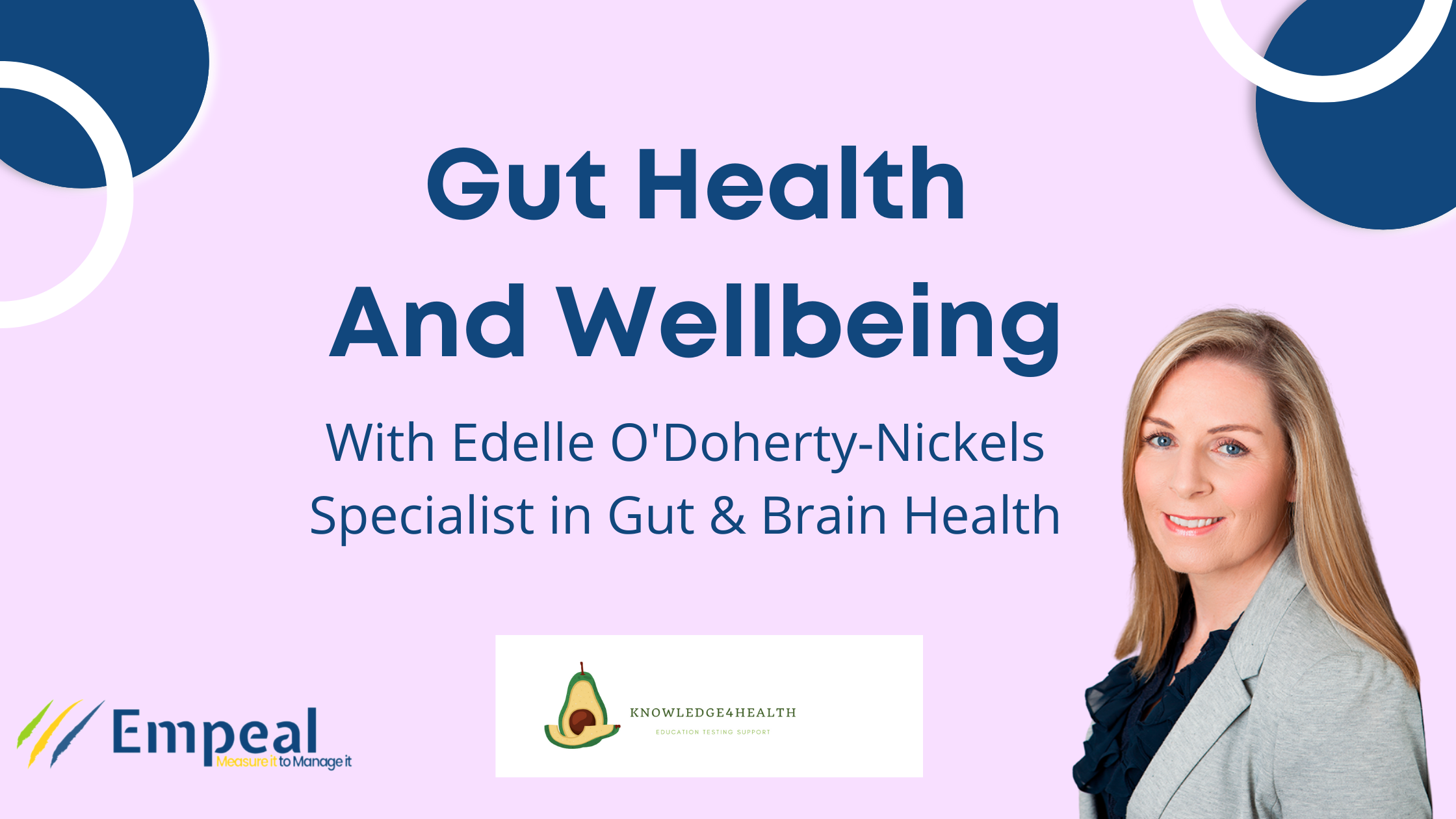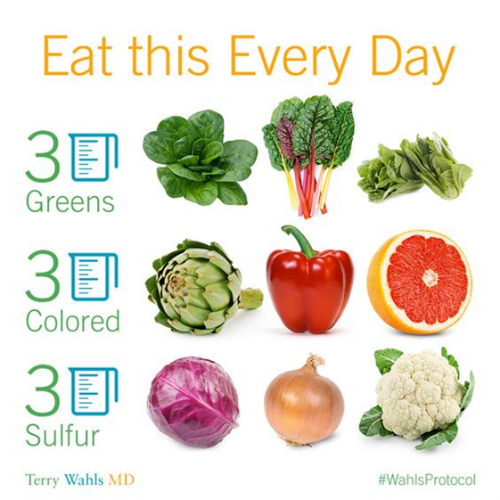Gut Health and Wellbeing
 30 Apr, 2022
30 Apr, 2022
As today is National Workplace Wellbeing Day, we have linked up with Edelle O’ Doherty-Nickels, who is the founder of Knowledge4Health and an expert in her field of gut and brain health, to discuss gut health and wellbeing.
Gut health is so important for managing overall wellbeing as within the gut there is “trillions of microbes that support the functions of the gut – they are a combination of bacteria, fungi, viruses, and protozoa”. The gut microflora has numerous roles such as vitamin production, breakdown of carbohydrates, protection from pathogens and even immunity. Not only can poor gut health lead to a myriad of diseases such as Crohn’s disease, Inflammatory Bowel Disease, Ulcerative Colitis, and many other health conditions, but also autoimmune diseases, brain diseases, cardiovascular disease, mental health disorders and others which may all start in the gut. The gut also has the ability to regulate mood and give us energy. Many employees feel stress as a result of work which can lead to a number of issues affecting wellbeing, however, a healthy gut microbiome will lead to happy, healthy employees. Therefore, it is important we look after our gut to ensure we are protecting ourselves against potential diseases and maintaining our wellbeing.
It is also important to acknowledge the link between your brain and your gut. Poor gut health can lead to brain health concerns such as low mood, anxiety, depression, Alzheimer’s disease, and Parkinson’s disease. As we are discussing wellbeing this week, we wanted to focus in on this connection between the brain and the gut. The Enteric Nervous System (ENS) is often referred to as your ‘second brain’ and is “two thin layers of more than 100 million nerve cells lining your gastrointestinal tract from the oesophagus to the rectum and can be up to 9 metres long”. The ENS and the Central Nervous System (CNS), the brain and spinal cord, share similar networks and hormones through which they communicate. “The vagus nerve is the main nerve in our body linking the brain with organs like the digestive tract, heart, and lungs”. Studies have shown that the brain can influence gut health, with poor nutrition and stress management affecting the microbial balance within the gut leading to vulnerability to disease.
We asked Edelle to share some tips to help our readers improve their wellbeing through their gut health.
Edelle’s Top Tips for Improving Gut Health
Water
Ensure your water intake is adequate - EFSA recommends 2L for women and 2.5L for men. One way to help increase water intake is to drink warm water with lemon or herbal teas – huge benefits to lemon water.
Water allows your gastrointestinal tract and kidneys to remove toxins from your body. It allows your cells to take in nutrients, and it also allows them to expel waste products. If you don't drink enough water, toxins will build up which can weaken the immune system but also cause symptoms of ill-health such as headaches, skin conditions, tiredness etc. Water helps you digest your food - one of the benefits of drinking plenty of water is that it keeps your digestive system strong so that you can properly digest your food. Drinking enough water on a daily basis is the single most important daily habit to maintain colon health. When we are dehydrated, the body’s detoxification pathways become overburdened. Toxins are more likely to accumulate in the colon, which can increase the overgrowth of unhealthy microorganisms and weaken the immune system.
Food
There are 2 high level approaches you can take to ensure the health of your gut:
1) Eat as many different foods as possible every week. Do the 50 foods challenge and try to count how many different foods you eat every week which provides a diversity of sources.
2) Eat the rainbow. When including fruits and vegetables in your diet aim for 3 cups of each colour every day – 3 of green, 3 of coloured, 3 of sulphur (sulfur).

Level the playing field and encourage diverse terrain with probiotics, prebiotics, phytobiotics, dietary intervention to ensure diversity and quality.
Probiotics – in the form of fermented foods such as kefir, kombucha, kimchi, sauerkraut. Probiotic foods don’t colonise the gut, but they crowd out the bad guys and use their food sources. It is beneficial to have small amounts of daily intake of probiotics e.g., a shot glass of kefir, 1 forkful of sauerkraut or kimchi, a small glass of kombucha. Edelle recommended an Irish product called Spoonful Botanical which contains fermented fruits and spice.
Prebiotics – feed the microbiota with fibre, both soluble and insoluble. Garlic, onion, artichoke, asparagus, and leeks are great natural sources. Apples, berries, onions, dark chocolate, and red cabbage, fruits, vegetables, whole grains, and seeds, especially chia seeds and linseed are also good options.
Polyphenols are a category of plant compounds that offers various health benefits. Regularly consuming polyphenols is thought to boost digestion and brain health, as well as protect against heart disease, type 2 diabetes, and even certain cancers.
To start off, natural and organic, good quality food would be the best option, staying away from processed foods, artificial sweeteners, and foods high in sugar.
Fasting - One should try to fast a minimum of 12 hours overnight and a minimum of 3 hours prior to bedtime – a rumbling tummy is the villi of our gut “sweeping” and clearing out waste. This gives your body the opportunity to ‘clean house’.
Adequate Sleep - Good sleep enhances autophagy – clearing out of waste and damaged cellular debris and allows our gut to rest overnight.
Reducing Stress - Breathwork and active stress management are essential to maintain a healthy gut. Stress is bad news for the brain-gut axis, and stress signals trigger the release of neurotransmitters and proinflammatory cytokines (molecules that contribute to inflammation and disease). Stress can cause various digestive disorders including inflammatory bowel disease (IBS), peptic ulcers, and food allergies.
Exercise - Exercise has been shown in research to increase the levels of “good bacteria” and if we can do it outdoors all the better. Exposure to a little dirt every now and then is very beneficial for the microbiome.
Social connection - Happiness makes a happy gut and current research does demonstrate that our social lives shape our microbial populations.
Edelle also talked about the impact environmental influences can have on gut health such as additives/sweeteners, pesticides, antibacterial handwash, and chemicals in our make-up, shampoo, and body care. When considering our microbiome, we must consider all of these things as many can be negative influences. It is the accumulation of all these things that can cause issues and leave us vulnerable to illness.
This National Workplace Wellbeing Day, take a moment to think about what small lifestyle changes you could make to improve your gut health, along with educating employees on gut health to boost performance and productivity in the workplace. For more information, contact Edelle at info@knowledge4health.ie or visit the website at www.knowledge4health.ie

How Healthy are You?
Get a picture of your current health status and habits by taking our short Health and Wellbeing Check!